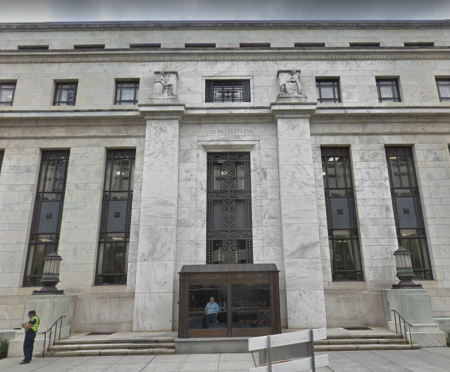The Christian case against fed rate setting

The Fed recently hiked interest rates and is widely expected to hike rates several times more. Some people argue that the Fed should keep rates where they are set now. A few argue that the Fed will shortly need to cut rates. But the view that seems to be missing from the debate is actually the most defensible one -- that the Fed not set rates at all. For most of US history, there was no central bank rate setting. Generally there was no central bank at all, and even during times when a central bank existed, it simply acted as the medium for administration of a gold or silver backed currency and occasionally stepped in to stop bank runs. During these time periods, inflation rates were much higher than times when the Fed micro-managed monetary values and growth rates were higher. The US grew from second rate status to global economic leader with no central-bank rate-setting at all. Of course, there were rates and they were set, but they were not set by a central authority. Instead they were set by the people with skin in the game, savers and borrowers with financial institutions playing the role of matchmakers.
The reason that it is important that government entities not override the voluntary negotiation process between savers and borrowers is that central authorities do not and cannot have enough knowledge to do so. Only savers know what 'price' it is worth them to forego consumption for a time and to instead lend to someone else. Only borrowers know how much they can afford to pay in interest. Markets aggregate a vast amount of knowledge. They tell us who we are as a people. The Bible praises those who defer gratification (as in casting their bread upon the waters and "He who loves wine and oil shall not be rich"). Esau is the quintessential example of a man who could not defer gratification and sold his inheritance for the price of a meal, whose "God is his belly." A society dominated by such values will have a scarcity of savings and an abundance of borrowing. A society where not enough people save and too many people borrow is a society with high interest rates -- that is, unless some central planner suppresses those rates. We are such a people. We have low savings and especially low savings when you consider that we are an aging society and that generally older people have larger pools of savings than young people just starting out. We are borrowers, with high liabilities for school loans (with diminishing relative value to the degrees offered), housing and consumer spending. But our spending proclivities are showing up most markedly in very high levels of government debt during peace time. We demand that government spends money, but we mask that spending by financing it through debt rather than through taxes. We finance much of those deficits by creation of new money supply which tends to be inflationary. By justice, interest rates should be high for an aging people, with little by way of savings, whose government is at peacetime debt levels and pursuing inflation policies to finance that debt. Our interest rates are historically low, not because saving is abundant, but because central bank money creation is abundant. That means that low interest rates are an illusion, a lie we tell ourselves. They are the financial equivalent of a skinny mirror which makes us look fiscally fit when we are actually fiscally flabby. The money illusion makes us think we can spend freely when in reality our higher spending is really higher prices, not higher production. And if it's not higher production than it cannot be higher long-term consumption because we cannot consume what has not been produced.
When the savers and borrowers strike hands to agree to a negotiated rate, it reveals a lot about them both. A society which defers gratification, with high savings rates, low borrowing and in which borrowers don't default and in which governments do not debase, is a society which has earned low interest rates. Economists and sociologists refer to something called "time preference." A famous example is the marshmallow test. Give children the choice between one marshmallow today and two marshmallows tomorrow and some will chose the former while others will choose the latter. The ones who choose the latter have low time preference. They can defer gratification. A nation of kids like the latter grows up to be a nation with low interest rates. The problem is that we've become a one-marshmallow-today kind of people. The wages of that kind of society, consumptive, prone to debt default and debasement are high rates representing the scarcity of capital and the added risk of lending. As Sidney Homer points out in his History of Interest Rates (which traces rates as far back as the Babylonian Empire), surges in interest rate tend to mark the late stage of an empire. It's a sign of decline.
But what does it mean when a society with the characteristics which should lead to high rates, refuse to face that reality and use modern central bank mechanisms to suppress the truth? It means the deferral of crisis. It means enabling debt levels which will ultimately not be able to be repaid. The longer that rates are suppressed, the greater the eventual crisis. The Fed should neither raise nor cut rates. That's a job for the people.
Jerry Bowyer is financial economist, president of Bowyer Research, and author of “The Maker Versus the Takers: What Jesus Really Said About Social Justice and Economics.”





















